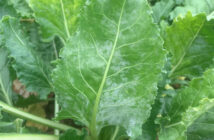The European Commission has approved under the EU Merger Regulation the proposed merger between US-based chemical companies Dow and DuPont. The approval is conditional in particular on the divestiture of major parts of DuPont’s global pesticide business, including its global R&D organisation.
Commissioner Margrethe Vestager, in charge of competition policy, said: “Pesticides are products that matter – to farmers, consumers and the environment. We need effective competition in this sector so companies are pushed to develop products that are ever safer for people and better for the environment. Our decision today ensures that the merger between Dow and DuPont does not reduce price competition for existing pesticides or innovation for safer and better products in the future.”
Today’s decision follows an in-depth review of the merger. The Commission had concerns that the merger as notified would have reduced competition on price and choice in a number of markets for existing pesticides. Furthermore, the merger would have reduced innovation. Innovation, both to improve existing products and to develop new active ingredients, is a key element of competition between companies in the pest control industry, where only five players are globally active throughout the entire research & development (R&D) process.
The commitments submitted by Dow and DuPont address these concerns in full. The parties will remove the overlap in markets, where concerns were raised, by divesting the relevant DuPont pesticide businesses. They will also divest almost the entirety of DuPont’s global R&D organisation. The Commission concluded that the divestment package enables a buyer to sustainably replace DuPont’s competitive effect in these markets and continue to innovate, for the benefit of European farmers and consumers.
As regards certain petrochemical products, where both companies are important players, the parties will divest relevant assets in Dow’s petrochemical business to preserve effective competition.
This transaction is one out of a number of proposed mergers in the agrochemical sector. The Commission examines each case on its own merits. In line with its case practice, the Commission assesses parallel transactions according to the so-called “priority rule” – first come, first served. The assessment of the merger between Dow and DuPont has been based on the currently prevailing market situation.
The Commission’s competition concerns
The Commission had three main categories of competition concerns.
a) Significantly reducing competition in a number of markets for existing pesticides
Pesticides are products used in agriculture to control pests that can harm crops. They can be categorised into herbicides (targeting weeds), insecticides (targeting insects) and fungicides (targeting diseases).
The merged entity would have held very high combined market shares for a number of pesticides, with few other competitors remaining. The Commission found that the merger would have significantly impeded effective competition and resulted in reduced choice and higher prices in the following markets:
As regards herbicides, the transaction would have significantly reduced competition for certain types of selective herbicides for cereals, oilseed rape, sunflower, rice and pasture in a number of Member States.
As regards insecticides, the transaction would have significantly reduced competition for products controlling for chewing insect and sucking insect in fruits and vegetables and some other crops in a number of Member States in particular in the South of Europe.
As regards fungicides, where the parties overlap to a more limited degree, the transaction would have reduced competition for rice blast fungicides in some Member States.
b) Significantly reducing innovation competition for pesticides
Innovation in pesticides is of particular importance. The Commission’s in-depth investigation confirmed that the ability and incentive to innovate is important to capture sales from competitors and to defend existing sales. Farmers value new products that are less toxic or more efficient against pests, which may become resistant to existing active ingredients over time.
The transaction would have had a significant impact on innovation competition by:
Removing the parties’ incentives to continue to pursue ongoing parallel innovation efforts – The Commission’s investigation of Dow and DuPont’s innovation pipelines demonstrated that the two are competing head-to-head in a number of important herbicide, insecticide and fungicide innovation areas. After the merger, they would have an incentive to discontinue some of these costly development efforts.
Removing the parties’ incentives to develop and bring to market new pesticides – The Commission found specific evidence that the merged entity would have lower incentives and a lower ability to innovate than Dow and DuPont separately. In its investigation it also found specific evidence that the merged entity would have cut back on the amount they spent on developing innovative products. Only five companies (BASF, Bayer, Syngenta and the merging parties) are globally active throughout the entire R&D process, from discovery of new active ingredients (molecules producing the desired biological effect), their development, testing and regulatory registration, to the manufacture and sale of final formulated products through national distribution channels. Other competitors have no or more limited R&D capabilities (e.g. as regards geographic focus or product range). After the merger, only three global integrated players would remain to compete with the merged company, in an industry with very high barriers to entry. The number of players active in specific innovation areas would be even lower than at the overall industry level.
c) Significantly reducing competition for certain petrochemical products.
Dow and DuPont’s activities also overlap in petrochemical products. Specifically, the Commission had concerns due to the high combined market shares of the two companies in the acid co-polymer market, where the number of competitors would be reduced from four to three. The Commission also had concerns due to the strengthening of DuPont’s dominant position in the ionomer market. These are products widely used in packaging and adhesive applications.
The Commission initially also had concerns relating to nematicides (products used to protect against nematode worms) and seeds. However, the in-depth investigation did not confirm these.
The commitments
The parties offered a set of commitments, which address the Commission’s competition concerns in full.
a & b) Preserving price and innovation competition in pesticide markets
The parties will divesta significant part of DuPont’s existing pesticide business, including its R&D organisation, in particular:
Globally, DuPont’s herbicides for cereals, oilseed rape, sunflower, rice and pasture (thifensulfuron, tribenuron, metsulfuron, chlorsulfuron, triflusulfuron, lenacil, flupyrsulfuron, ethametsulfuron and azimsulfuron) and insecticides for chewing insect and sucking insect control for fruits and vegetables etc. (indoxacarb, cyazypyr and rynaxypyr). They will also divest all tangible and intangible assets underpinning the divested products (including the facilities where the products are manufactured) and relevant personnel.
An exclusive license to DuPont’s product for rice cultivation in the European Economic Area to address the more limited concerns relating to fungicides.
DuPont’s global R&D organisation, with the exception of a few limited assets that support the part of DuPont’s pesticide business, which is not being divested.
The Commission concluded that the divestment package will enable a buyer to replace the competitive constraint exerted by DuPont. Competition on price and choice in existing markets is preserved because all of DuPont’s products in problematic markets are divested. The sale of the underpinning R&D organisation and pipeline ensures the viability and competitiveness of the divested business on a lasting basis and will enable the buyer to become a global integrated R&D competitor.
c) Preserving competition for certain petrochemical products
Dow will divest its two manufacturing facilities for acid co-polymers in Spain and in the US, as well as the contract with a third party through which it sources ionomers that it sells to its customers.
International cooperation
The Commission has been in close contact with a number of other competition authorities, which are also reviewing the transaction. In particular, the Commission has had regular exchanges with the US Department of Justice and the competition authorities of Australia, Brazil, Canada, Chile, China and South Africa.
Companies and products
Dow is headquartered in the United States. It is the ultimate parent company of the Dow group, which is active in plastics and chemicals, agro-chemicals, and hydrocarbon and energy products and services.
DuPont is also headquartered in the United States. It is the ultimate parent company of the DuPont group, which is active in a variety of, plastics and chemicals, agro-chemicals, paints, seeds, and other materials.




